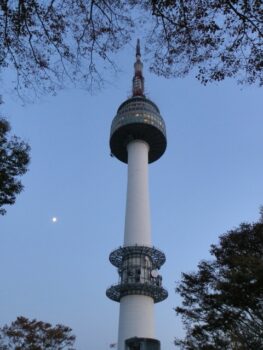Professional Korean Interpreters & Translators Worldwide – Video Remote Interpreters are also available

Korean Translation & Interpreting Services Worldwide – English to Korean, Korean to English as well as multiple other languages.
We provide Korean translation and interpreting services for all industries and occasions in locations across the globe.
If you are looking for accurate and reliable Korean language services to facilitate your business activities, TJC Global can help.
Our Korean translators and interpreters are a team of highly trained experts who understand the nuances and complexities of the languages they work with. We believe linguistic excellence should go hand in hand with an in-depth knowledge of subject matter and for this reason, we always endeavour to provide Korean translators and interpreters with a background or qualification in the given field.
TJC’s professional Korean interpreters and translators can deliver high-quality interpreting and translation services for a wide variety of industries, including the manufacturing, legal, medical, technical, industrial, engineering, environmental and energy and renewable energy sectors.
Our network of Korean interpreters also includes certified interpreters for international conferences, court interpreters and business meeting interpreters. We also cover all types of technical discussions; also US depositions, arbitrations and hearings as well as all manner of other events and meetings in major industries.

Korean Arbitration Interpreters
Our arbitration interpreters can assist those seeking an alternative to litigation. Read more…
Korean Business Meeting Interpreters
Our Korean business meeting interpreters can assist you in negotiations, discussions and collaborations. Read more…
Korean Conference Interpreters
At TJC Global, we have a network of Korean certified conference interpreters for multi-national conferences of all natures. Read more…

Korean Court Interpreters
Our Korean court interpreters are familiar with the format, conventions, procedures and requirements of court interpreting. Read more…

Korean Deposition Interpreters
We can provide specialist deposition interpreters for witness testimonials, as is common in the US and Canada. Read more.
Korean Legal Interpreters
TJC Global’s Korean legal interpreters can cover court cases, hearings, and tribunals. Read more…
Korean Legal Translators
We cover a variety of legal materials and documents, including but not limited to letters, legal documents, contracts, summonses, evidentiary documents, statements, patents, and more.
Korean Medical Interpreters
Our medical interpreters are familiar with medical terminology, ensuring they deliver informed, precise, and efficient interpretation in this highly specialised sector.

Korean Medical Translation
Our Korean medical translators are all native speakers of your target language and often hold a degree or certificate in the medical sciences.

Korean Technical Translation
Our technical interpreters can cover assignments in a broad range of industries; including aerospace, motoring, manufacturing and civil engineering. Read more…
Why choose TJC Global’s Korean Interpreters?
- Our native Korean interpreters and translators combine expertise in their chosen industry with an in depth knowledge of the languages at hand.
- We can provide Korean language experts in highly specialist fields, ranging from multiple branches of engineering to marketing, from pharmaceuticals and medicine to advanced legal issues.
- All our Korean interpreters and translators have many years experience in their field, and professional qualifications to match, ensuring language support of the highest-quality.
- We have earned the trust of hundreds of local, national and international companies and organisations. For more information regarding our previous clients, please click here.
- We always provide a reliable and confidential service.
- Our Korean translators can achieve fast turnaround times for translation and thorough proofreading.
- We realise the importance of cultural business knowledge so our services are set up not only to translate verbal communication, but to help interpret cultural differences and support our clients when it comes to the subtleties of language.
Locations for Korean Translation & Interpreting Services Worldwide
Our Korean interpreters cover locations across the globe. For some of the most popular cities, we cover, please see below. For other countries and cities, our Korean interpreters cover, please click here to see our list of locations for Korean interpreters worldwide. If the location you require is not listed here, chances are we will still cover it – please contact us directly.
About Korean for Korean Translation & Interpreting Services
Korean is the official language used in both North and South Korea. Its genealogical classification is widely disputed and many linguists and language historians class Korean as a ‘language isolate’ (a natural language with no ‘genetic’ relationship to any other language, which has been cultivated in an isolated environment), others believe it belongs to the Altaic language family. In South Korea, the language is most often called Hangungmal or more formally, Hangugeo or Gugeo (literally “national language”). In North Korea and Yanbian Korean Autonomous Prefecture in China, the language is most often called “Chosŏnmal” or more formally, “Chosŏnŏ”. Korean people in the former USSR, who refer to themselves as Koryo-saram, call the language “Goryeomal”.
Just like any other nation, South Korea has its own business etiquette. See our Doing Business in Korea Page to find out more.
What forms of interpreter services can TJC Global provide?

Video/videoconference interpreting: (Video Remote Interpreting is also available) TJC provides professional language interpreting services to support a wide range of events, including business meetings, conferences, legal proceedings (court hearings, arbitration, or litigation), and other online business interactions across industries.
Participants can connect via video or voice calls using computers, laptops, smartphones, or tablets. If needed, sessions can be recorded to facilitate the creation of meeting minutes. Our highly qualified interpreters seamlessly join virtual meetings, events, or proceedings to provide remote interpretation in the language pairing required, ensuring clear and effective communication for all parties involved. Additionally, we offer relay interpreting services as needed.

Telephone/teleconference interpreting: Telephone or teleconference interpreting is an efficient solution for overcoming language barriers. The interpreter can either work remotely (separate from both parties) or be physically present with one of the parties. In either scenario, they provide interpreting services through a telephone conferencing setup.
This service is particularly valuable for clients unable to travel internationally but still need to conduct business discussions or share progress updates. At TJC Global, we are proud to offer professionally qualified interpreters in a wide range of language combinations, ensuring clear and effective communication.
Simultaneous & Consecutive interpreting

Simultaneous interpreting (also available with Video Remote Interpretation (VRI))
Simultaneous interpreting is ideal for international conferences, high-stakes business discussions, seminars, and symposiums. Typically, two to three interpreters work from a soundproof booth, separate from the audience. They take turns interpreting at high speed, switching every 15–20 minutes to maintain focus and ensure the highest quality interpretation.
Using headsets, the interpreters listen to the speaker’s message and deliver it in the target language almost instantly (“simultaneously”) to the intended audience. This method also supports relay interpreting, which is especially useful for multilingual presentations where speakers use several languages.

Consecutive interpreting (also available with Video Remote Interpretation (VRI)) is one of the most widely used types of interpretation. It is suitable for business discussions, negotiations, contract signings, commercial, legal, and technical meetings, medical appointments, court hearings, on-site inspections, and audits.
In this mode, the interpreter listens carefully to the speaker, often taking notes, and then conveys the meaning in the target language. They typically wait for a natural pause or for the speaker to finish a segment before delivering the interpretation quickly and accurately.
Consecutive interpreting is also commonly employed in conferences for panel discussions, Q&A sessions, or private interactions between parties, whether at a stand or another setting.
What to do next? Contact us
Please use the Quick Quote system above for a quote for interpreting, translation services or a related enquiry.
If you would like more information about our language services, please contact us.




























